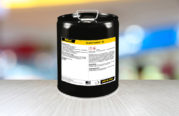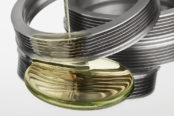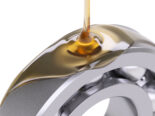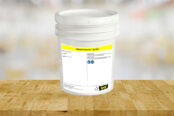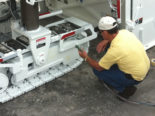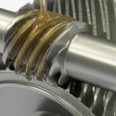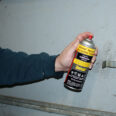Rust is a persistent problem for metal surfaces, especially those exposed to harsh environments. If left unchecked, rust can cause significant damage and undermine the strength of metal objects. So, to safeguard against rust, it’s essential to use the right rust preventative. But with so many options available, it can be tough to determine which one is the best for your particular application. In this blog post, we’ll examine the various types of rust preventatives and highlight their strengths and limitations, helping you make an informed decision.
Oil-Based
Oil-based rust inhibitors are the most widely used type of rust preventatives. They’re easy to apply and form a barrier against moisture, one of the primary causes of rust. However, they can be messy and require frequent reapplication, making them unsuitable for applications where cleanliness is crucial.
Wax-Based
For metal surfaces exposed to outdoor conditions, wax-based rust inhibitors are an excellent choice. These rust inhibitors provide longer-lasting protection than oil-based inhibitors and form a tough, protective film on metal surfaces. They’re resistant to water and other environmental factors, making them ideal for outdoor applications. The only drawback is that they can be difficult to remove and leave a residue.
 |
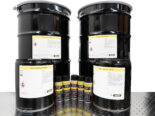 |
Water-Based
Water-based rust inhibitors are highly effective, providing a strong barrier against rust-causing elements such as moisture and salt. They’re easy to apply, dry quickly, and are non-toxic, making them perfect for food and medical applications. Additionally, they’re environmentally friendly and typically more affordable than oil-based and solvent-based rust preventatives. However, they may not provide long-lasting protection in harsh, high-temperature conditions.
Grease-Based
For metal surfaces subjected to high levels of friction, such as gears and bearings, grease-based rust inhibitors are ideal. They provide excellent protection against rust and reduce friction, extending the lifespan of moving parts. These rust inhibitors also double as lubricants, making them suitable for applications that require both rust protection and lubrication. However, they can be messy and attract dust and other contaminants, making them unsuitable for clean applications. Furthermore, grease-based rust inhibitors may break down over time, requiring more frequent reapplication.
In conclusion, the best rust preventative for your application depends on a range of factors, including the type of metal surface, the environmental conditions it will face, and your specific needs. Whether you choose an oil-based, wax-based, water-based, or grease-based rust inhibitor, ZERUST® can help you with your corrosion prevention needs. We analyze the current state of your corrosion management needs and work with you and your team to implement the best and most cost-effective solution. ZERUST® can come to your facility and do a step-by-step analysis of your current process, including fluid audits, VCI and packaging process audits, and data logger analysis. Our mission is to provide you with the right products, processes, and procedures to ensure that you can achieve your desired results.

